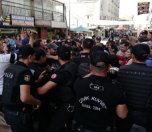AKP Aims to Achieve More Than One Goal with Mayor Dismissals but Opposition is Not Hopeless
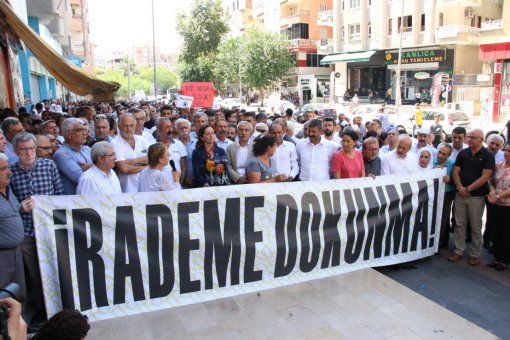
*People carry a banner that says, "Don't touch my will" in a protest in Diyarbakır on August 27. (Photo: MA)
Click to read the article in Turkish
The Ministry of Interior on August 19 dismissed the mayors of Kurdish-majority Diyarbakır, Mardin and Van cities on the grounds of ongoing terrorism-related investigations against them.
With this move, the people of the region once again faced their elected leaders being replaced with government-appointed trustees after 2016, when the government removed 94 mayors from the Democratic Regions Party (DBP) from office following the coup attempt in July.
President and Justice and Development Party (AKP) Chair Recep Tayyip Erdoğan also said before the March 31 local elections that they would not hesitate replacing mayors who are involved in terrorism, referring to the candidates of the Peoples' Democratic Party (HDP).
HDP Co-Chair Pervin Buldan called on the government to "read the message of the voters correctly" and leave nationalist policies after the local elections where the AKP lost seven major cities, including İstanbul and the capital Ankara, to the main opposition Republican People' Party (CHP) candidates who were also supported by the HDP, the nationalist İYİ (Good) Party and the Islamist Felicity Party (SP).
The AKP suspended a "resolution process" to the Kurdish question during the conflict period that began after it lost the parliamentary majority for the first time in the elections on June 7, 2015. It has then developed an alliance with the Nationalist Movement Party (MHP), beginning with the 2017 referendum for a switch to a presidential system.
Abdullah Öcalan, the imprisoned leader of the outlawed Kurdistan Workers' Party (PKK) also called on the government to start a new resolution process after his meeting with his lawyers on August 7.
The replacement of the mayors came 12 days after Öcalan's call with the AKP showing no sign of breaking its alliance with the MHP.
AKP's dependence on MHP
"President Erdoğan and the AKP have developed a dependency on the MHP for three reasons," says Özgür Ünlühisarcıklı, the director of the German Marshall Fund's Ankara office.
"The first reason is that the AKP cannot constitute a majority in the parliament without the support of the MHP. The second reason is the difficulty of getting 50 percent plus 1 of votes in the next presidential election without the support of the MHP. The third and the less obvious reason is the need to work with MHP cadres in the bureaucracy after the FETÖ's coup attempt. Even though the MHP is gaining more in this asymmetric relationship, it does not seem easy for the AKP to abandon this relationship of alliance in the foreseeable future."
The government's move drew criticism from a wide spectrum of opposition factions. Along with the CHP, the İYİ Party, an offshoot of the MHP, the SP which shares the same Islamic roots with the AKP criticized the ruling party for "not respecting the people's will."
Ahmet Davutoğlu, a former PM who is poised to leave the AKP and found a new party, and Abdullah Gül, the previous president who is said to be supporting another offshoot movement led by former deputy premier Ali Babacan, also denounced the dismissal of mayors.
"Dependence on the MHP has limited the Erdoğan administration's options in managing the Kurdish problem and the fight against terrorism. On the other hand, these dismissals may have been aimed at creating cracks in the opposition alliance, which is already fragile due to the diversity of the ideological stances of its constituents," Ünlühisarcıklı comments.
Assoc. Prof. Ayşen Candaş, a visiting scholar at Yale University, agrees that the AKP also aims to draw a wedge between the opposition groups.
"It is necessary to underline that the regime has successfully pursued a strategy based on a consistent 'divide and rule' approach, especially on the Kurdish question, at least since 2009. Two groups, the 'pro-regime' Kurds and 'the democratic Kurds to be criminalized', are being pitted against each other in accordance with the new regime's hierarchical 'norms' that reject equality.
"With this move, the support of the Kurds who have cultural and economic ties to more hierarchical and traditional forms and therefore to the new regime and whose desire for democratization is not dominant is ensured while the other democratic groups are intimidated through the criminalized democratic political faction of the Kurds. Also, the message 'We are clamping down on terrorism' is given to the pro-regime and anti-regime nationalist people.
"Many goals are achieved at the same time with one move. Because it is determined that this is a very efficient move, it is put into effect when the democratic opposition begins to unite its power and rise. At the same time, they make the opposition paralyzed, expose its paralysis and try to build a barrier between opposition groups, saying, 'Kurds have no other way than to pledge allegiance to their elder brothers in the regime.'"
Another talking point after the replacement of the HDP mayors is whether the AKP will also dismiss the mayors of İstanbul and Ankara. Shortly after the ousting of the HDP mayors, pro-AKP accounts launched a campaign on social media, demanding Ekrem İmamoğlu, the mayor of İstanbul, also be removed from office.
Gürsel Tekin, a CHP MP for İstanbul, claimed that they heard the AKP is preparing for a similar move in İstanbul and Ankara. When reporters asked İmamoğlu if he expects to be ousted, he said, "Everybody should know their limits," calling the government to respect the will of the people.
Erdoğan made vague remarks on the matter in a speech he made on the weekend, first criticizing İmamoğlu for being on vacation when floods occurred in İstanbul, then saying that they won't allow the city "to be gifted to terrorists".
What now for the opposition?
So, how should the opposition act from now on, regardless of keeping the metropolitan municipalities of İstanbul and Ankara? According to Assoc. Prof. Candaş, an "opposition front," even if an informal one, should be created by the democratic groups within the Turks and the Kurds:
"What is the greatest and most urgent need of the opposition who looks at the Kurdish question 'from outside in' should be thought carefully with a clear mind: Is it more important to reject the most democrat parts of the Kurds who embraces women and minorities in an egalitarian way and reject their value and maintain a blood feud between the Kurds and the Turks that has been continuing all along or to re-establish the country that has a constitution that respects human rights and international law, is pluralist, inclusive, democratic and based on equal citizenship? To the extent that these questions can be answered clearly, and because of those whose minds have started to work in this direction, when a united opposition strives together, even under the current circumstances, has been able to find opportunities to demonstrate its strength since 2015.
"If Turkey is going to come out of the technically totalitarian direction, it will do it because of the 'united opposition', which moves towards constitutional democracy, Solidarity in the direction of equal citizenship, albeit in an informal way. The other possibility is a hierarchical and woman-less solution to the Kurdish problem within the framework of sectarianism and religiousness that will crate distinctions within the Turks as well as the Kurds who have a pluralistic nature and that won't bring lasting peace. However, both Turks and Kurds deserve better than that in the 21st century.
"A consensus on democratic principles, human rights, the rule of law, and compliance with international conventions can bring together all segments to lasting peace and democracy. The fact that the regime's moves have now run aground in Syria, the economic crisis created by a self-closed understanding, and the fact that the legitimacy of the regime is ending in the eyes of the people, including its own base, also creates an important window of opportunity for the solidarity of the democratic parts of the country." (VK)
Explained: The broader context behind Turkey’s crackdown on İstanbul mayor
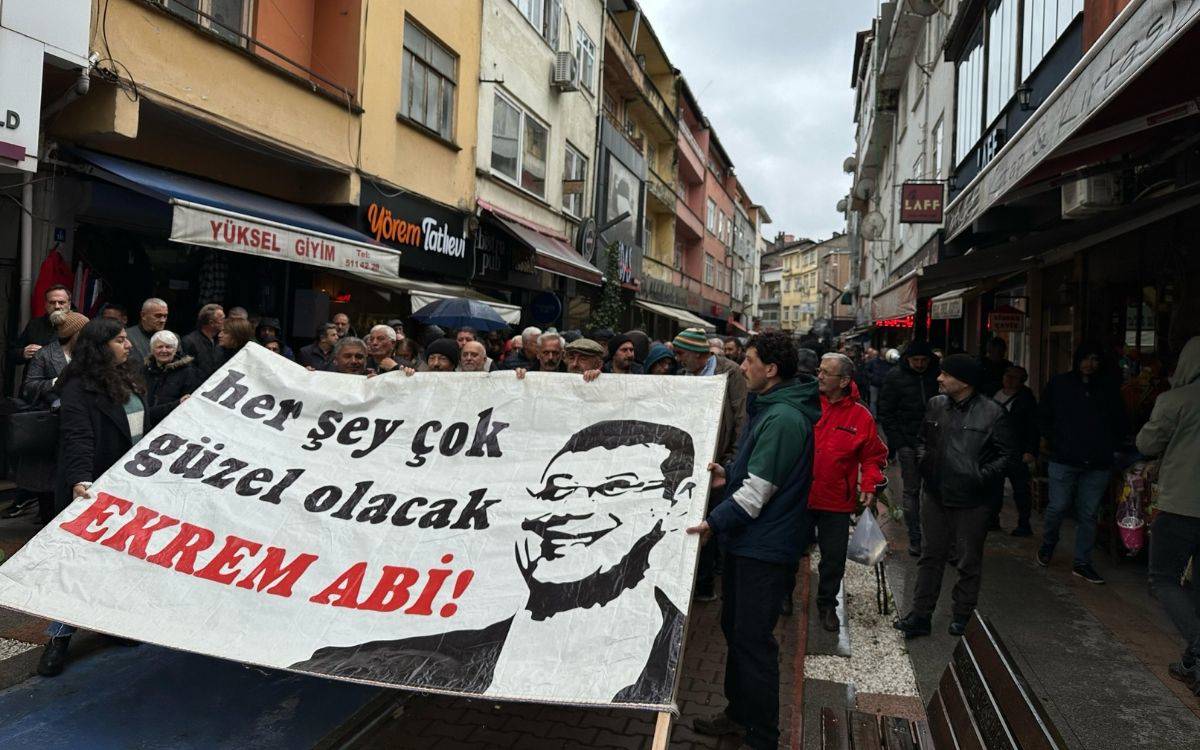
Turkey's independent media protest Google over ‘algorithmic censorship'

Despite health issues, Bahçeli seems at steering wheel of Turkey’s new Kurdish initiative
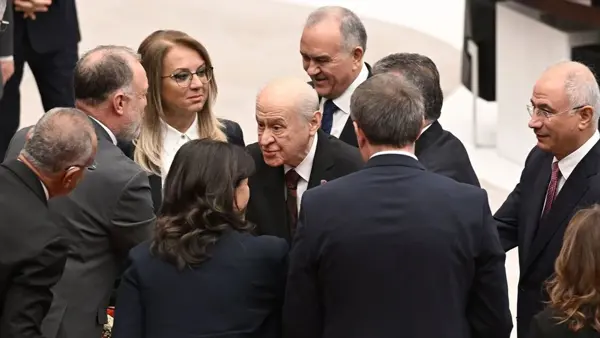
Turkey’s crackdown on Kurdish political movement expands to ‘terrorist weddings’
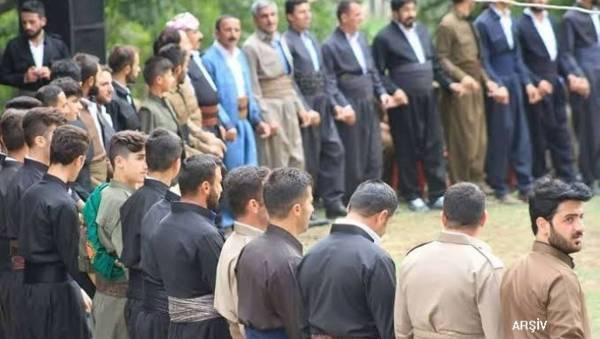
Violent protests target refugee community in Turkey’s Kayseri after alleged sexual assault on minor
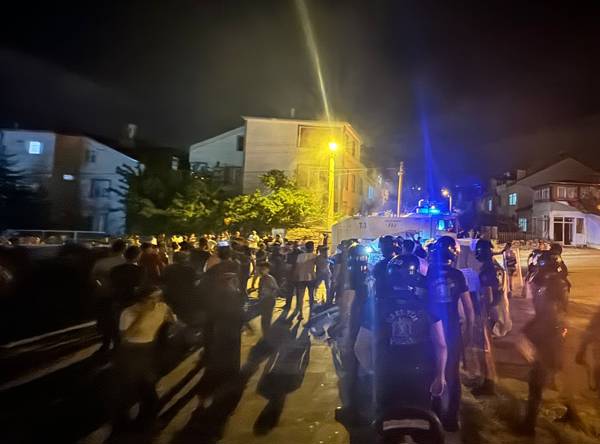




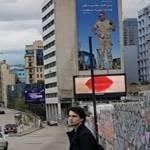
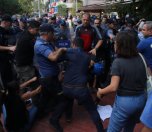

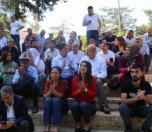
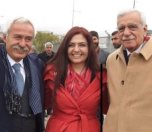
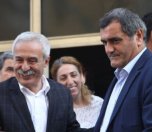

dfffd.jpg)
